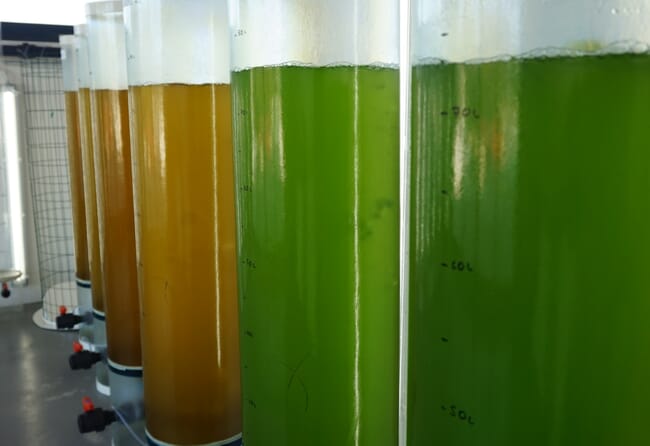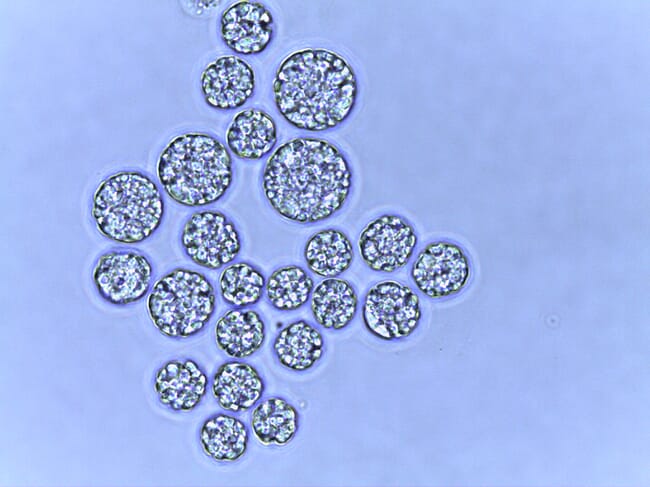
© Algared
Expanding its extensive raw material portfolio is one of the most important cornerstones for pioneering innovation at BioMar, and the search for novel ingredients to advance innovation and sustainability is ongoing.
The research and development on algae-based ingredients in BioMar dates back in 2013 with extensive internal and external research projects. A recent example was the Alga4Fuel&Aqua project, a collaboration between BioMar Hellenic, the University of Thessaly and other key stakeholders.
The first commercial feeds containing microalgae hit the markets in 2016, and by 2021 BioMar had reached one million tonnes of salmon feeds containing microalgae. Now with the upscaling of microalgae in the raw material portfolio at the Brande facility in BioMar, it is now no longer considered a niche ingredient.
Anders Brandt-Clausen, Managing Director, BioMar Baltics, explains, “microalgae has been a game-changing strategic ingredient for us for years, and still is. We are now delighted to increase the volumes we use significantly and raise the sustainability bar for our flagship products. Microalgae is no longer a novel idea, it has become a commercial reality.”

Sustainable and nutritious profile
Marine ingredients such as fishmeal and fish oil are excellent sources of nutrients vital for fish nutrition, however they are finite resources. By including microalgae high in long chain omega fatty acids in feed diets, it is now possible to bypass the wild fish and go straight to the original source of marine omega-3s. This helps to relieve pressure on our oceans while ensuring that the fish are getting the optimal nutrition required, and it also lowers the fish-in-fish-out ratio.
Algae as a key factor in achieving climate targets
BioMar has made significant efforts to source raw materials and ingredients that do not compete with the human supply chain. As part of these efforts, the company pledged to create aquafeeds that were 50 percent circular and restorative by 2030.
Circular raw materials are those originating from by-product and waste streams and BioMar define restorative ingredients as raw materials that significantly shift the balance between ecosystem impacts and human production systems towards a net-positive environmental outcomes.
“We see this as the birth stage for the next generation feeds with a highly sustainable profile from Brande. Adding microalgae paves the way for the upcoming developments on our sustainable feeds that our farmers will directly benefit with a reduction in their own on-farm footprint,” he concludes.




